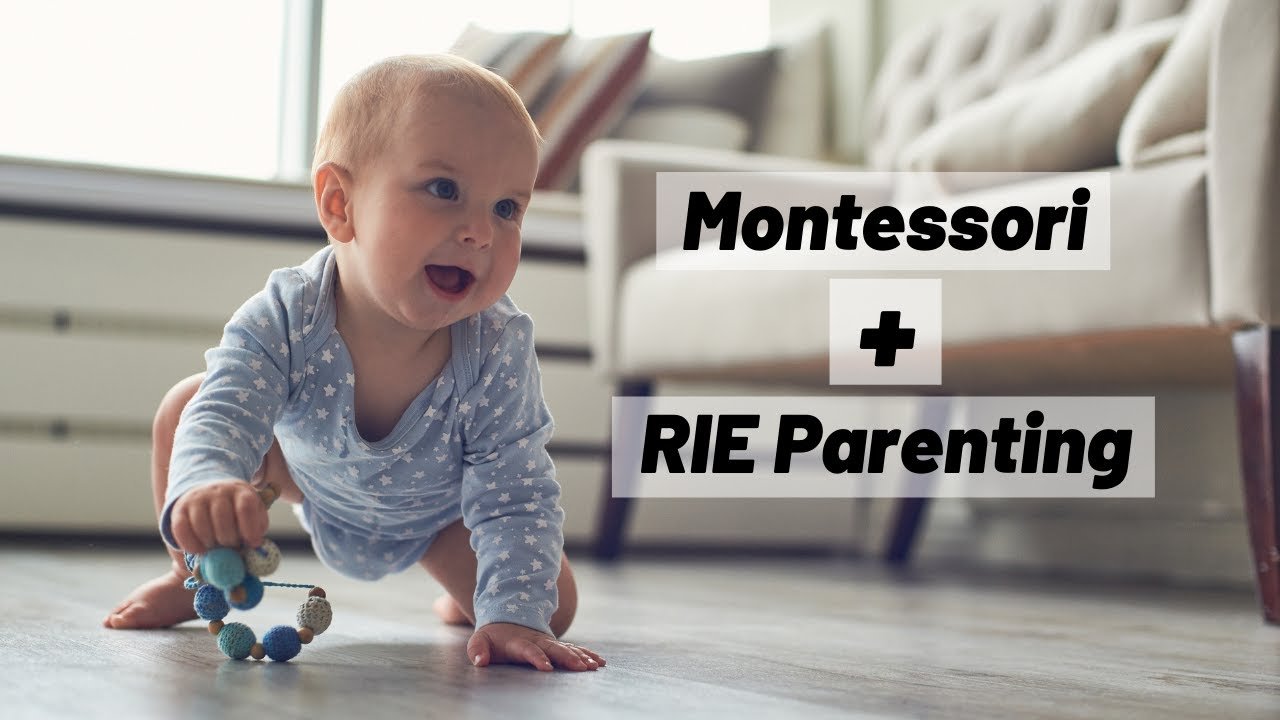Hi, my name is Ashley and I’m a mom of two little girls, Kylie and Mia. If you’re a Montessori parent like myself, you’ve probably come across the term respectful parenting in your journey. In today’s video, I’ll be discussing the key similarities and differences between Montessori and respectful parenting in a Montessori home. I’ll be sharing my personal experience and knowledge on respectful parenting, focusing on the intersection between the two approaches. We’ll explore similarities such as trust in the child’s competence, fostering independence, and providing a safe and supportive environment. We’ll also discuss differences, including the age focus and the use of open-ended materials. By the end of this video, you’ll have a better understanding of how both approaches can complement each other and enhance your parenting journey. So let’s dive in and explore the world of Montessori and respectful parenting together!
Key Similarities between Montessori and RIE Parenting
Trust in the child’s competence
Both Montessori and RIE parenting approaches emphasize the importance of trusting in the competence of the child. They view the child as capable, independent, and eager to learn. Both approaches encourage adults to follow the child’s lead, observe their interests, and respond to their cues. By trusting in the child’s competence, adults can create an environment that supports the child’s natural development and allows them to reach their full potential.
Fostering independence
Another key similarity between Montessori and RIE parenting is the focus on fostering the child’s independence. Both approaches recognize that independence is a natural and essential part of a child’s development. They encourage adults to provide opportunities for the child to practice and develop their independent skills, such as dressing themselves, preparing their own snacks, and cleaning up after themselves. By fostering independence, adults can help the child build self-confidence, self-reliance, and a sense of personal accomplishment.
Mutual respect between adult and child
Montessori and RIE parenting both emphasize the importance of establishing mutual respect between adults and children. In both approaches, adults are encouraged to treat children as individuals with their own thoughts, feelings, and desires. They reject authoritarian discipline and instead focus on collaboration and open communication. By cultivating mutual respect, adults can create a positive and nurturing relationship with the child, where the child feels valued, heard, and understood.

Observation
Observation is a fundamental practice in both Montessori and RIE parenting. Both approaches encourage adults to carefully observe the child’s behavior, interests, and developmental milestones. By observing the child, adults can gain a deeper understanding of their needs, abilities, and unique developmental timeline. This allows the adult to provide appropriate guidance, materials, and experiences that support the child’s growth and development.
Freedom for uninterrupted play
Both Montessori and RIE parenting recognize the importance of uninterrupted play in a child’s overall development. They believe that children learn best through self-directed play and exploration. Both approaches advocate for creating an environment that allows the child to engage in uninterrupted play, free from unnecessary interruptions or distractions. By providing the child with uninterrupted playtime, adults give them the opportunity to follow their interests, develop their creativity, and strengthen their problem-solving skills.
Carefully prepared environment
Both Montessori and RIE parenting emphasize the importance of a carefully prepared environment for the child. They believe that the environment plays a crucial role in shaping the child’s development and independence. Both approaches encourage adults to create an environment that is safe, orderly, and aesthetically pleasing. This includes providing developmentally appropriate materials, organizing the environment in a logical and accessible way, and allowing the child to have freedom and independence within the space.
Modeling
Both Montessori and RIE parenting emphasize the importance of modeling appropriate behavior for the child. They believe that adults should be positive role models and demonstrate desired behaviors and values. Both approaches encourage adults to be mindful of their actions and words, as children are constantly observing and imitating. By modeling respectful, responsible, and kind behavior, adults can teach the child important life skills and values.
Allowing the child to decide on eating
Both Montessori and RIE parenting advocate for allowing the child to have a say in their eating habits. They believe that children should be given the freedom to decide when, what, and how much they eat. Both approaches encourage adults to offer a variety of healthy and nutritious foods and allow the child to choose what they want to eat from the options provided. By giving the child autonomy over their eating, adults can foster a positive relationship with food and encourage the development of healthy eating habits.
Providing a safe and supportive environment
Lastly, both Montessori and RIE parenting prioritize providing a safe and supportive environment for the child. They believe that children thrive in an environment that is emotionally supportive and physically safe. Both approaches encourage adults to create an environment where the child feels secure, loved, and respected. This includes setting clear and consistent boundaries, providing emotional support and validation, and ensuring that the physical environment is free from hazards.
Overall, Montessori and RIE parenting share many key similarities. They both prioritize the child’s competence, independence, and mutual respect between adults and children. They both emphasize the importance of observation, uninterrupted play, a carefully prepared environment, modeling, allowing the child to decide on eating, and providing a safe and supportive environment. By understanding and incorporating the principles of both approaches, parents can create a nurturing and enriching environment for their children.

